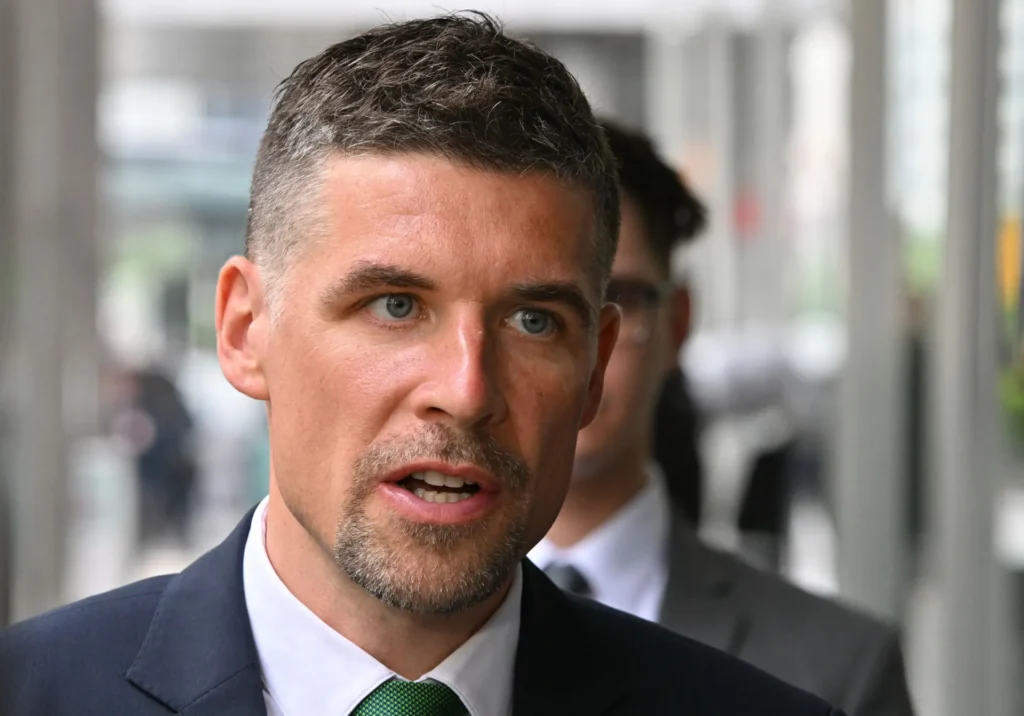The European People’s Party (EPP) mission visited Slovenia on Monday to check on the state of the rule of law, democracy and the media. As we have previously reported, the authorities avoided a meeting with the Members of the European Parliament. But Peter Gregorčič, former President of the Programme Council of the national media outlet, Radio-Television Slovenia (RTVS), gladly met with them.
Gregorčič met with MEPs and explained in detail how the Golob government is eroding the rule of law in Slovenia. He explained to them all the details of the current government’s usurpation of the media, the courts and other institutions, and presented his views on the political purge of staff that the current government has carried out at RTV Slovenia.
In the same context, he also explained the inaction of the Constitutional Court, which has not yet ruled on the case more than two years after the constitutional complaint.
Major problems with the rule of law
He explained to the MEPs that Slovenia has many problems with the rule of law, because we have a dysfunctional Constitutional Court, which itself stated in its own decision that “the Constitutional Court cannot fulfil its constitutional role within a reasonable time, in accordance with the principle of effective judicial protection.” All of this gives the authoritarian regime of Robert Golob a free pass to politically subjugate institutions that are supposed to be independent.
The purges at RTV
In the attached text, he explained in detail the political purge at RTV Slovenia that was carried out by the government of Robert Golob following the amendment of the Radio-Television Slovenia Act, which allowed for the removal of independent journalists and editors and the appointment of loyal individuals by interest groups, instead of members being appointed by the National Assembly. Gregorčič claims that this violates democratic principles and Article 5 of the European Media Freedom Act.
Political subjugation of the Constitutional Court
He also pointed out that the only legal avenue to oppose this was a constitutional appeal to the Constitutional Court, which initially suspended the implementation of the law in question. However, even this safeguard gave way when the government tried to influence the Court’s decision through political pressure and alleged collusion with some judges, with the support of the previous European Commission. Later, the Court lifted the suspension of the law by a marginal majority (4 to 1). In Gregorčič’s view, this is a clear sign that the highest instance in the country has succumbed to political pressure, thus setting a dangerous precedent.
Accetto admitted to influencing the pace of decision-making
At the Constitutional Court, the failure to protect the rule of law has ended the effective protection of human rights and the independence of institutions, which, according to Gregorčič, means the complete subordination of institutions to political power. The case is similar to what happened in Hungary and Poland, where political purges of the judiciary and public institutions took place after the seizure of power.
Harsh criticism of Accetto
Gregorčič was harshly critical of the then-President of the Constitutional Court, Matej Accetto. Accetto allegedly showed publicly that he was leading the case of RTV and influencing the pace of decision-making. Accetto’s statements to journalists revealed that he is in no hurry to reach a decision because there is no longer a temporary suspension of the implementation of the law in place – which the author perceives as an excuse to delay the process. Gregorčič also pointed out that the case is still pending, more than two years after the complaint was lodged.
He also drew the attention of Members of the European Parliament to the failed attempts at communicating with the European Commission. He believes that if the European Commission had acted in time, it could have prevented the undermining of the rule of law in Slovenia. However, Ursula von der Leyen did not respond to his appeals.
I. K.


